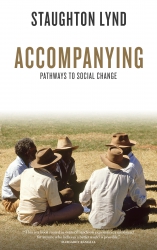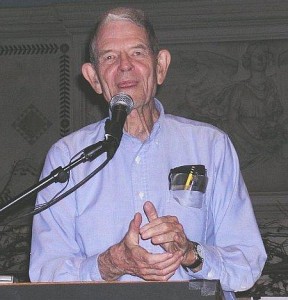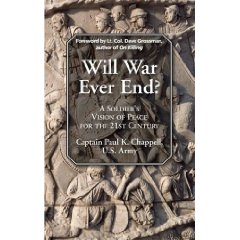Staughton Lynd: Accompanying: Pathways to Social Change
May 20, 2013 by David
Filed under Non-Fiction
 978-1-60486-666-7 – PM Press – Paperback – $14.95 (ebook versions available at lower prices)
978-1-60486-666-7 – PM Press – Paperback – $14.95 (ebook versions available at lower prices)
For me and for many others who came of age politically in the mid-to-late sixties, Staughton Lynd was an early and important figure. He had been a Quaker and war resister, Civil Rights Movement participant, was cogent and critical about social structures and an early leader in the anti-Vietnam War movement. He taught at Yale, but left academia, earned a law degree, and with his similarly activist partner and wife Alice Lynd, moved to Youngstown, Ohio and became active in the effort to save the steel mills there. While that effort did not succeed, the Lynds have remained in Ohio for over 30 years working at a grass roots level in the labor movement, as well as with imates of Ohio prisons and with others across the country.
Accompanying is a short book, but extremely focused and coherent. Lynd contrasts the hierarchical “organizing” efforts of the sixties civil rights and antiwar movements with the concept of “accompaniment” first articulated by Archbishop Oscar Romero of El Salvador, wherein organizers listen to their colleagues rather than instructing them. Lynd then applies this distinction between organizing and accompaniment to the social movements in which he has been a participant for the past fifty years, which include the labor movement, civil rights, antiwar organizing, prisoner insurgencies, and the Occupy movement of the past few years. Alice Lynd, who has been his partner in all these efforts, adds her experience as a draft counselor during the Vietnam War era and now as an advocate for prisoners in maximum-security facilities.
The Lynds together bring an incredible range of experience, dedication and commitment to the human spirit and to the kind of social change that so many have wished for and demanded for so long. I was struck by how their description of accompaniment resonates so well with the principles of cooperation and listening espoused by so many who have grown up in the Internet era. It’s crucial to connect these ideas to political and economic analysis and to questioning the organizing principles of our society. Anyone interested in social change in the modern world should read this book and attend to its simple and powerful precepts. Here’s a great piece by Lynd speaking at the IWW Centenary in 2005, a website with more information about his work, and the publisher page for Lynd and his books (recommend buying directly from the publisher, PM Press, to support its work).  I am honored to have been able to have this conversation with this ever intelligent, dedicated, and coherent activist and writer.
I am honored to have been able to have this conversation with this ever intelligent, dedicated, and coherent activist and writer.
Podcast: Play in new window | Download
Will War Ever End? Capt. Paul K. Chappell
January 31, 2009 by David
Filed under Non-Fiction

978-1935073-02-4
Ashoka Books, Hardcover $14.95
“There is cause to hope, and believe, that there can be an end to war.”
–Lt. Col. Dave Grossman, U.S. Army (ret.), author of On Killing
Writerscast host David Wilk interviews first time author US Army Captain Paul K. Chappell, whose new book, Will War Ever End? A Soldier’s Vision of Peace for the 21st Century will be published in February, 2009. The author talks about his personal background, why an active duty soldier who has served in Iraq has written a “manifesto for waging peace,” and explores some of the powerful ideas he covers in his new book. In a wide ranging interview Captain Chappell makes clear that achieving peace is not just a cliche, discusses the practical ways we can all work toward an active state of peace on earth, and gives compelling evidence for his reasoning that human beings are not naturally violent. In this interview the author shows why his powerful and original ideas are receiving so much attention among thinkers and activists for peace. The book website is located at www.paulkchappell.com.
Podcast: Play in new window | Download
